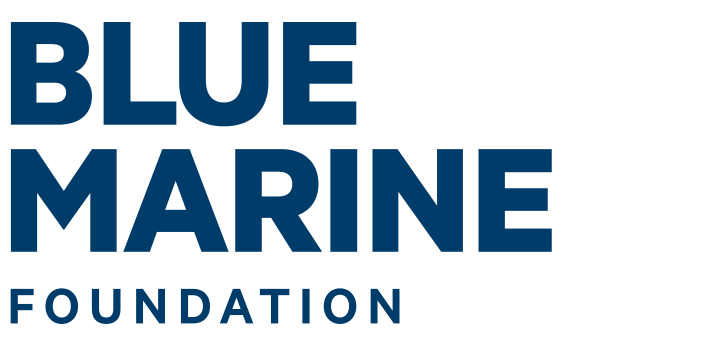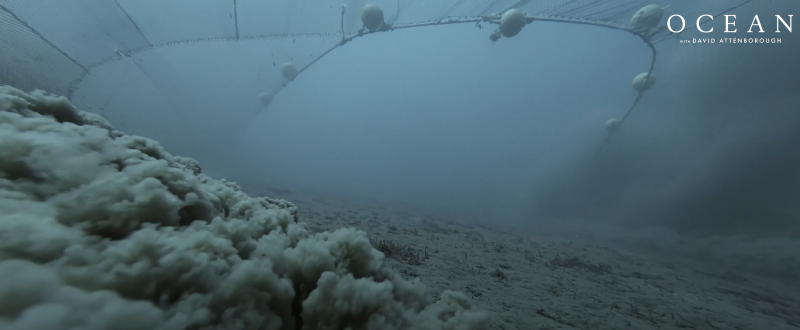By Charles Clover
It was President Macron’s day as resident host at the UN Ocean conference and he was first up. For those relatively new to his style of speech making it came over as a curiously low-key experience, a bit like a student reading off his notes, name-checking things his audience cares about in technically sophisticated language, ie sea levels are rising, there’s 8m tonnes of plastic entering the oceans and that the oceans capture a quarter of the carbon we emit. Why did he need to say what everyone in the room or online already knew? Did he have a deficiency of things to say? There was a rousing passage, to get decent people on side, about the need for multilateralism, a joke about France sending an expedition to the deep sea, our real frontier, not Mars (a dig at Elon Musk). He reassured the hall that Greenland was not for sale (a dig at Trump), the Arctic was not for sale (a dig at Putin). He called for people to fight all the bad things – plastic, IUU fishing, and the looting of biodiversity and to support the movement France had supported that called for marine reserves on the high seas. Yet he made no mention at all of what he was going to do about the way France is currently itself responsible for looting biodiversity – in contrast to the increasing number of nations, pledging at this conference, who are actually protecting it – by continuing to allow bottom-trawling in 98 per cent of the protected areas in its own waters. The elephant was still in the room. Everybody knew it.
What Macron did was a lot of claiming. He claimed credit for the ten-year progress towards a 4m sq kms of marine protected areas, complete with large no-take zones, in French Polynesia. Now, as I understand it, French Polynesia is largely independent, with its own president, and its initiative was driven by a local movement entirely independent of the French state and backed by US and other foundations. Bottom trawling is banned in French Polynesia and has been for a long time and they have taken action to curb the use of FADs, “fish aggregating” devices with which the French and Spanish fleets litter other parts of the ocean. So to claim credit for all that is like drifting in as some kind of colonial master. A bit passé. Macron, as co-chair of the conference, also claimed 15 new pledged ratifications of the High Seas treaty in the two hours before the conference which would allow the treaty to enter into force by the end of the year. He called this “a huge win for ocean multilateralism” – but there was no way of knowing whether his arithmetic yet added up. It’s certainly getting close, which is reassuring. And then, for once, he claimed something that he had actually led on himself, when he said that a moratorium on deep sea mining was something for which there was “an international need.”
Macron may have avoided the elephant altogether in his big speech. But in an interview with Le Marin – a specialist marine news channel that the French government has taken to briefing instead of the main, and arguably more critical outlets – on Saturday, he felt the need to argue that he was doing something about the beast in question. He said the amount of French metropolitan waters that would be “highly protected” would rise to 4 per cent. This sounded like progress until it turned out to be for the most part a relabelling of areas below 800m that have been protected under EU law since 2017. He also brazenly claimed credit for protecting areas of Posidonia seagrass in the Mediterranean where France has licensed trawling and was prosecuted for it by two NGOs.
Winding up the first public session of the conference, António Guterres, the UN Secretary General, offered some memorable turns of phrase, each of which seemed to contain an implied rebuke. “The Deep Sea cannot become the Wild West,” he said, in probable reference to the Trump administration’s tearing up of international rules still preventing seabed mining. “When we protect more areas life returns. What was lost in a generation can return in a generation,” he said. He’d seen the Attenborough film and he wasn’t letting Macron get away with it.
—-
Was it disorganisation or a nervousness about having anything to do with civil society that was affecting the organisers of the UN conference in Nice? After queuing for two hours from 6.45 am in the port of Nice, more than an hour of that before the UN’s accreditation office opened at 8am (this was the day the conference began and you would think it reasonable to think you could fly in the night before, turn up early and get a pass), we were told by a UN functionary that all the special passes to the “blue” zone where the politicians are – and many of the events we had booked to attend – were gone. The conference venue was apparently too small to fit those who the organisers knew had registered to attend. The venue was even smaller than the one in Lisbon two years ago for UNOC2, which managed to accommodate us all. Yet twenty minutes walk up the road was the Palais des Expositions, where thousands of people tramped around between panels and exhibitions in the cavernous spaces of The Whale, or the “green” zone. Why did the French government, the city of Nice and the UN, not choose to hold the main event there in a more inclusive way? Was there an element of paranoia involved? I don’t know, but it felt like it.













